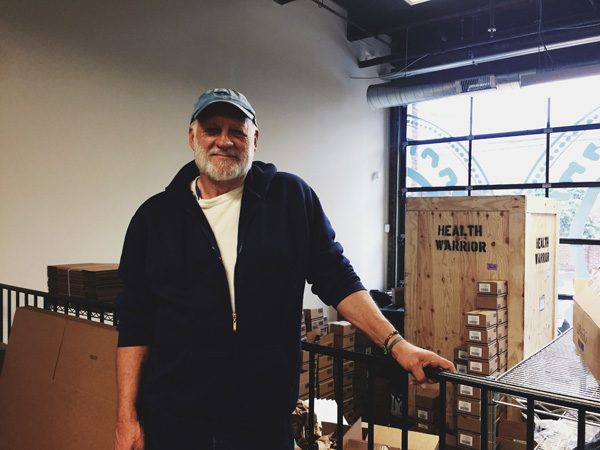When Mickey Mahaffey hiked into the canyons of Tarahumara, his life changed forever. Now, he’s working with GlobalGiving and Health Warrior to give back to the community that has given him so much. We interviewed Mickey to learn more.
 Mickey Mahaffey is helping Tarahumara chia farmers overcome the effects of drought in partnership with Health Warrior and GlobalGiving. Photo by Angela Wu.
Mickey Mahaffey is helping Tarahumara chia farmers overcome the effects of drought in partnership with Health Warrior and GlobalGiving. Photo by Angela Wu.
Mickey Mahaffey is originally from Hendersonville, North Carolina. He has lived and worked with the Tarahumara community for 20 years. When he completed a 35-hour, non-stop dance ceremony in the Tarahumara village of Guadalupe Coronado, he was accepted as an adopted son. Since then, he has organized projects to deliver emergency food supplies during severe drought and initiated long term agricultural projects. He has worked as the liaison and guide for Harvard University research expeditions and in film production with BBC London and Brazil Public TV to document Tarahumara culture. He is currently working with GlobalGiving and Health Warrior to assist Tarahumara farmers with planting, seed storage, soil renewal, and marketing.
A: After walking over 1,000 miles from North Carolina, I unexpectedly ended up in Mexico in the massive canyon land of Tarahumara, known as Sierra Tarahumara. I had never heard of the Tarahumara community or their land. When I began walking trails through their mountains and canyons, I was immediately captivated by the Tarahumara’s peaceful presence, rich culture, and rugged landscape. As I began to attend their ceremonies and stay in their homes, I was greatly inspired by their strength of character and their incredible endurance for work, dance, walking, and running.
A: The majority of Tarahumara are pre-industrial, subsistence farmers with lifestyles conspicuous for minimal attachment to materialism. In the most remote areas much of commerce is still done by trade, the people depend very little on money. Their carbon footprint is near zero. I have wanted to learn as much as possible from them and share their story worldwide as an example of conscious living.
A: They are renowned for their endurance for running ultra marathons and are often referred to as the “running people.” While they certainly are some of the best long distance runners in the world and running is an important aspect of their culture it would more appropriate to call them the “walking/farming/dancing people,” as those activities are practiced much more than running and by the whole community—men, women, and children.
A: We endured seven years of semi-drought to severe drought, which left many people near starvation, depleted the seed stock for planting future crops, and forced thousands to leave their homes in hopes of finding work in Chihuahua City and other towns. Last season’s rain was abundant, producing a bumper crop in most areas which helped immensely. But this past winter was dry with little snow in the upper elevations. Many springs that feed the farms have dried up. As is the tradition among Tarahumara, they are dancing yumari, an ancient, pre-Columbian ceremony to give thanks and ask for abundant rain.
A: Our project has three primary objectives:
Learn more about how your company can partner with GlobalGiving to create a custom corporate social responsibility program.
Find exactly what you're looking for in our Learn Library by searching for specific words or phrases related to the content you need.